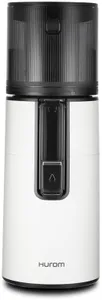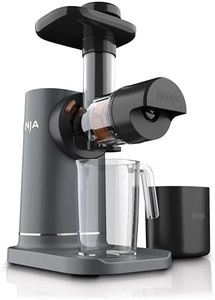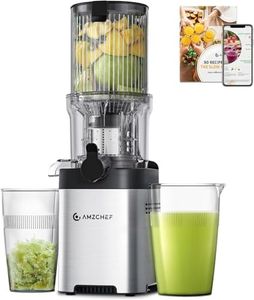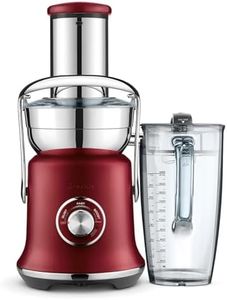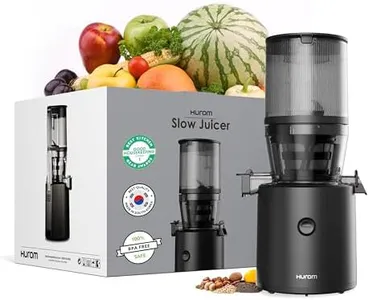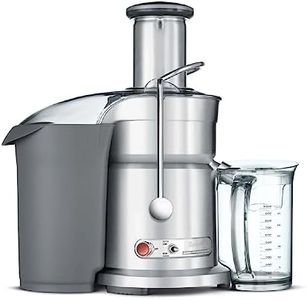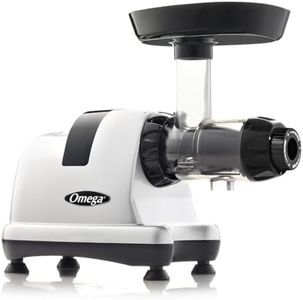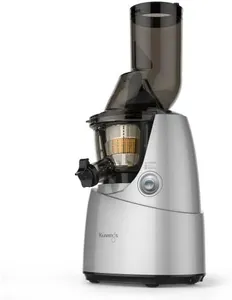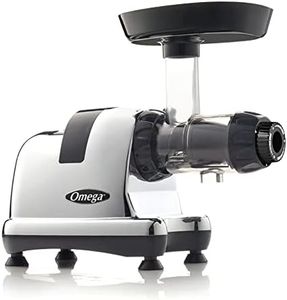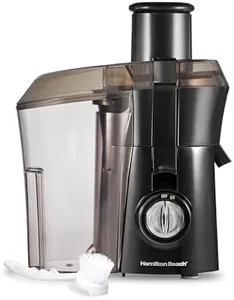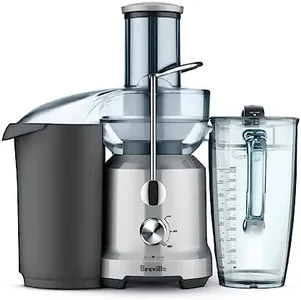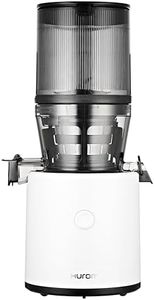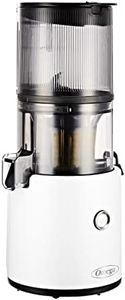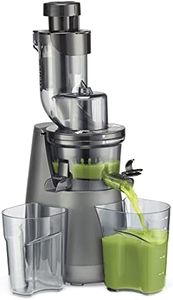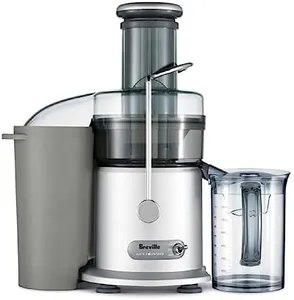We Use CookiesWe use cookies to enhance the security, performance,
functionality and for analytical and promotional activities. By continuing to browse this site you
are agreeing to our privacy policy
10 Best Juicer Machine Best
From leading brands and best sellers available on the web.Buying Guide for the Best Juicer Machine Best
Choosing the right juicer machine can make a big difference in how often you use it and how much you enjoy fresh juice at home. The best juicer for you depends on what types of fruits and vegetables you want to juice, how much time you want to spend on preparation and cleaning, and how important juice quality is to you. Understanding the main features and how they relate to your needs will help you make a smart choice.Type of JuicerThe type of juicer refers to the mechanism it uses to extract juice. The main types are centrifugal, masticating (also called slow or cold press), and citrus juicers. Centrifugal juicers are fast and good for hard fruits and vegetables, but they can be noisy and may not extract as much juice from leafy greens. Masticating juicers work more slowly but are quieter and better at juicing greens and soft fruits, often producing more juice and less foam. Citrus juicers are specialized for oranges, lemons, and similar fruits. To pick the right type, think about what you plan to juice most often and whether speed or juice quality matters more to you.
Juice YieldJuice yield is the amount of juice you get from a given amount of produce. Higher yield means less waste and more value from your fruits and vegetables. Masticating juicers usually have a higher yield, especially with leafy greens, while centrifugal juicers may leave wetter pulp. If you want to maximize juice output, especially from greens or soft produce, look for a machine known for high yield. If you mostly juice hard fruits and don't mind a bit of waste, yield may be less critical.
Ease of CleaningEase of cleaning refers to how simple it is to take apart and wash the juicer after use. Some juicers have many small parts and fine mesh filters that can be tricky to clean, while others are designed for quick rinsing or are dishwasher safe. If you want to juice regularly, a machine that's easy to clean will encourage you to use it more often. Consider how much time you're willing to spend on cleanup and look for models with fewer parts or cleaning tools included.
Feed Chute SizeFeed chute size is the opening where you insert fruits and vegetables. A larger chute allows you to put in bigger pieces or even whole fruits, reducing prep time. Smaller chutes require more chopping and preparation. If you value convenience and want to save time, a wide feed chute is helpful. If you don't mind cutting produce or have limited counter space, a smaller chute may be fine.
Noise LevelNoise level is how loud the juicer is during operation. Centrifugal juicers tend to be louder due to their high-speed motors, while masticating juicers are generally quieter. If you plan to juice early in the morning or in a shared space, a quieter machine may be important. If noise isn't a concern, you can focus on other features.
Pulp ControlPulp control refers to the ability to adjust how much pulp ends up in your juice. Some juicers let you choose between more or less pulp, while others have a fixed setting. If you have a strong preference for smooth or pulpy juice, look for a machine with adjustable pulp control. If you're not picky, this feature may not be necessary.
Size and StorageSize and storage relate to how much space the juicer takes up on your counter or in your cabinets. Larger machines may offer more features or capacity but can be bulky. Compact models are easier to store but may have smaller juice containers or chutes. Consider your kitchen space and how often you plan to leave the juicer out versus storing it away.
